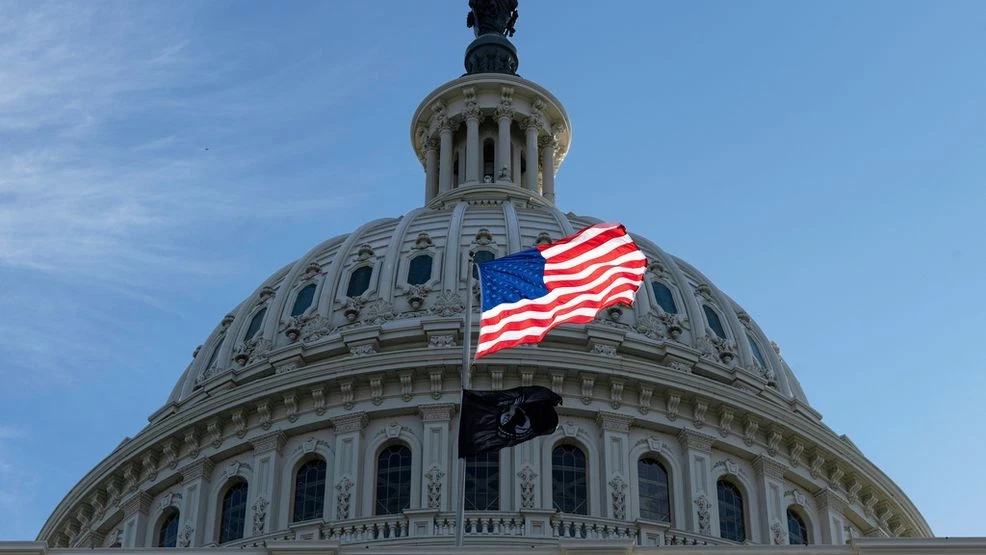
America’s political divide is crushing faith among its citizens that the country can conquer its most prominent issues and whether elected leaders are able to overcome partisanship to find solutions to pressing problems.
A New York Times-Siena University poll released Thursday showed Americans are losing faith in the country’s political system to solve the nation’s problems, which comes as partisan divisions in Congress are leading to fewer examples of bipartisan compromise and more high-stakes showdowns to meet deadlines keeping the government operating at full capacity.
Only 33% of registered voters in the survey said they had faith in the political system to address the country’s issues, while 64% said it was too politically divided.
The survey also found shifting views on what issues are hurting the country. The economy was still the No. 1 concern, but inflation, immigration and crime — problems that drove voting decisions in 2024 — have receded behind polarization and the state of democracy.
How voters are interpreting the second Trump administration and its impact on democracy is another divisive issue facing the country and falls on partisan lines. More than half of voters said Trump is exceeding the powers available to him as president, including 90% of Democrats and 58% of independents, while only 17% of Republicans agreed. Forty-six percent said his actions present a unique threat to America’s system of government, driven by 84% of Democrats and 52% of independents.
But the polling also found Americans still have some optimism and want to avoid painting the other side as enemies. Only 10% of Democrats in the survey said they think as Republicans as “the enemy,” while 14% of Republicans said that about Democrats.
That comes amid a bipartisan blame game from elected officials on what spurred the recent wave of political violence, as Democrats have with aggressive rhetoric toward his political rivals, while Republicans argue Democrats have demonized the president and his supporters.
Scores of elected officials have voiced concerns about toning down the rhetoric and condemning political violence, calls that have taken a backseat to the current issue of funding the government that has resulted in more finger-pointing than bipartisan discussions on finding a solution.
“The problem is us. We do reward politicians who are morons, we do reward — with our eyeballs and our attention — material that’s fake and that’s rage-inducing. We reward all of this. The impetus is on us, but human beings are also prone to be super defensive and not think that they are part of the problem,” said Alison Dagnes, a political science professor at Shippensburg University and the author of “Super Mad at Everything All the Time.”
Addressing the country’s problems with polarization and lowering the temperature has become more prominent after the murder of Charlie Kirk, who was shot and killed during an event in Utah last month. His death spurred new concerns about the safety of elected leaders and other political figures amid a that has shook the country.
Trump was targeted in two assassination attempts last year; former Democratic Minnesota state House speaker Melissa Hortman and her husband were killed in their home this summer — the same day Democratic State Sen. John Hoffman and his wife were shot multiple times; Democratic Pennsylvania Gov. Josh Shapiro’s home was set on fire while he and his family slept inside; Supreme Court Justice Brett Kavanaugh was targeted in an assassination plot.
Judges, members of Congress, prosecutors and their families are also facing an influx of threats with questions about how the government can ensure protection of its elected officials and public servants. A heightened threat environment comes as polling has also captured increasing shares of Americans who think violence will be necessary to correct course.
A PBS-NPR-Marist poll released this week found nearly one-third of Americans believe political violence is necessary to get the country back on track, compared to just 19% less than two years ago. The increase is driven across the ideological spectrum, with 31% of Republicans, 28% of Democrats and 25% of independents agreeing America may need to resort to violence.
The ongoing government shutdown is likely to further perceptions of an inept and polarized Congress as over whose fault it is with no immediate end in sight. The Trump administration has posted notices on government websites about the “radical left” taking the government hostage, while Democrats have accused Republicans of trying to rip away healthcare by refusing to negotiate on extending subsidies.
“When everybody is very busy playing hardball politics, they’re not really looking at the definition of what a politician is supposed to be doing, because a politician is supposed to be representing all of their constituents, not just one side or the other,” Dagnes said.



